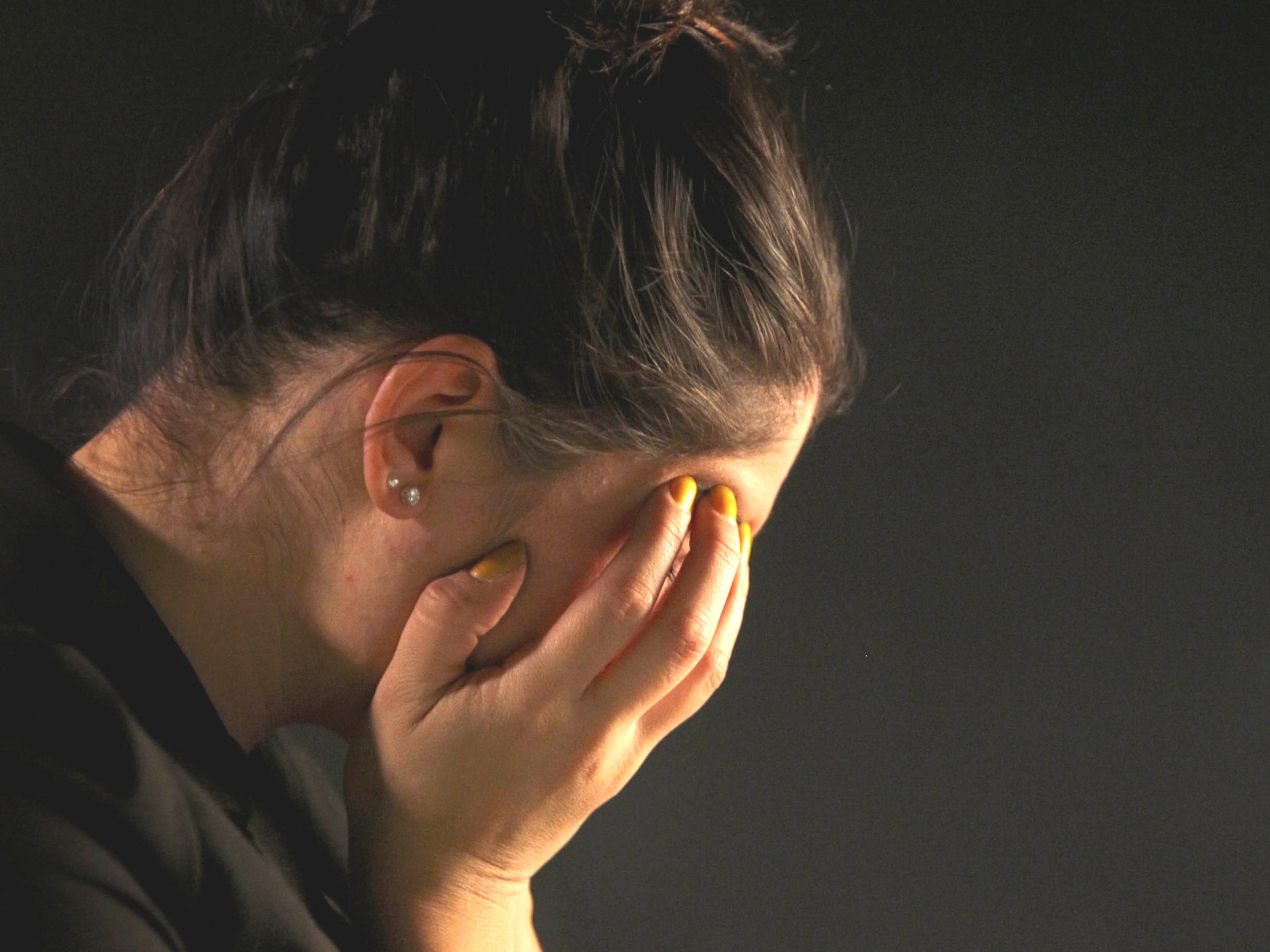Domestic violence victims 'not taken seriously by police'

Your support helps us to tell the story
From reproductive rights to climate change to Big Tech, The Independent is on the ground when the story is developing. Whether it's investigating the financials of Elon Musk's pro-Trump PAC or producing our latest documentary, 'The A Word', which shines a light on the American women fighting for reproductive rights, we know how important it is to parse out the facts from the messaging.
At such a critical moment in US history, we need reporters on the ground. Your donation allows us to keep sending journalists to speak to both sides of the story.
The Independent is trusted by Americans across the entire political spectrum. And unlike many other quality news outlets, we choose not to lock Americans out of our reporting and analysis with paywalls. We believe quality journalism should be available to everyone, paid for by those who can afford it.
Your support makes all the difference.Women’s lives are being put in jeopardy by the “alarming” failure of police across the country to treat domestic violence seriously and professionally enough, a damning report by inspectors warns today.
HM Inspectorate of Constabulary [HMIC] concluded that 35 of the 43 forces in England and Wales were providing a substandard service to women who dial 999 after suffering violence in the home.
With a woman killed every five days by a violent partner or ex-partner, HMIC warned the treatment of victims was “often a lottery” depending on where they lived, with some women put at “ unnecessary and avoidable risk”.
It found officers often omitted to photograph victims’ injuries or to take detailed notes on cases.
Many forces were also let down by “antiquated” technology that failed to provide officers with information about repeat offenders. It warned of poor leadership on the issue in many areas and disclosed that numbers of arrests for domestic abuse varied dramatically between forces.
Domestic abuse accounts for eight per cent of all recorded crime, with police receiving a call for help every 30 seconds from a woman reporting violence.
While police chiefs pay “lip service” to taking domestic abuse seriously, many officers appear more focused on tackling organised crime or burglary, the HMIC said.
It singled out Lancashire Police for its high quality response and also had praise for Dorset, Durham, Norfolk, Northumbria, Suffolk, Thames Valley and Warwickshire constabularies.
But it warned of failings in every other force, with “very serious concerns” about the performance of Bedfordshire, Cambridgeshire, Gloucestershire and Greater Manchester Police.
Bedfordshire had just one officer working in its specialist domestic violence unit and the inspectors uncovered a case of a victim’s 13-year-old daughter acting as an interpreter for officers in Manchester investigating allegations against her father.
The inspectors, who interviewed hundreds of victims, found many felt they not been taken seriously or “felt judged” when they alerted police.
They said there were “unacceptable variations” nationwide in responses to offences, ranging from just over 40 per cent of crimes resulting in arrest in Northamptonshire to close to 100 per cent arrest rates in Cleveland and South Wales. There was a similar dramatic variation in numbers of perpetrators who are charged.
Tom Winsor, the Chief Inspector of Constabulary, said: “Domestic abuse casts a truly terrible blight on the lives of very many people and can have tragic consequences.
“In too many police forces we found there were serious weaknesses in services, which are putting victims at unnecessary and avoidable risk, and failings in some core police activity.”
Theresa May, the Home Secretary, who commissioned the inspection, described its findings as “deeply worrying” and said she would chair a “national oversight group” to drive through reforms.
She said: “I expect chief constables to respond to this report by changing radically their response to domestic violence. They owe it to victims of these appalling crimes to do so.”
Yvette Cooper, the shadow Home Secretary, said the situation had been deteriorating for three years.
She added: "We need answers from the Home Secretary about why things are getting so much worse and what she will do to improve action by the police, prosecution and support services too.”
According to figures last week, police recorded 60,080 incidents of domestic abuse in Scotland in 2012-13, a rise of 233 on the previous 12 months.
Join our commenting forum
Join thought-provoking conversations, follow other Independent readers and see their replies
Comments